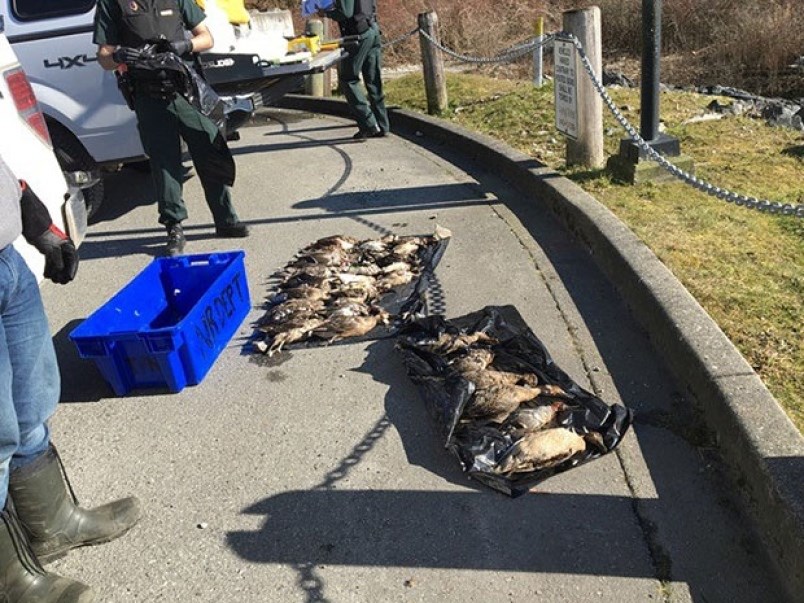The mysterious mass death of ducks in Tsawwassen has been attributed to malnutrition.
In late February, 31 ducks were found dead in a man-made pond in front of the Tsatsu Shores condo complex on the Tsawwassen First Nation, a disturbing case that had residents concerned poisoning might have been the cause.
Environment and Climate Change Canada officers retrieved the dead birds on Feb. 26 and conducted an investigation.
In a statement to the Optimist this week, a spokesperson with Environment and Climate Change Canada stated, “As it is unusual for 30 dead birds to be found in the same time/location, carcasses were examined to determine cause of death, which was determined to be starvation. Initial suspicion was that the birds may have been poisoned, perhaps through contact with contaminated water. However, veterinary pathologists determined that the loss of body condition was severe enough to account for death of the birds.
“Water samples for toxicology testing were conducted. The reason why these birds died of starvation could not be confirmed. There is no concrete evidence of environmental contamination.”
The Tsawwassen First Nation issued a news release last week that stated Environment and Climate Change Canada did necropsies on six of the dead ducks.
“Prior to necropsy, it was known the birds were extremely emaciated, which ECCC determined could only have resulted from weeks or months of malnutrition. No other indicators were present that would account for the emaciation, with no foreign objects found inside the birds. One bird tested positive for influenza; a naturally occurring ailment in birds,” according to the TFN.
“ECCC conducted extensive water testing, finding no hazardous substances. Two compounds were detected in the form of vegetable oil fats, which are not harmful to waterfowl. As such, scientists have determined the birds died of natural causes due to lack of nutrition, possibly exacerbated by unusually poor weather in February.”
Tsatsu Shores resident Jan Rutledge told the Optimist she received a letter from a wildlife officer stating there was no definitive reason for the deaths, other than the birds were found to be emaciated, and there was nothing unusual found in the water.
“Basically, we didn’t learn anything other than they were emaciated. So many dying in one little area to me is still a mystery,” she said.
Mike Brotherston, Delta’s manager of climate action and environment, said he can’t recall such a mass bird death within a confined area in Delta. There’s only been a couple of instances of groups of dead geese being discovered in ditches, but he said both those cases involved someone having culled the birds and dumping the remains.
– Sandor Gyarmati, Delta Optimist



